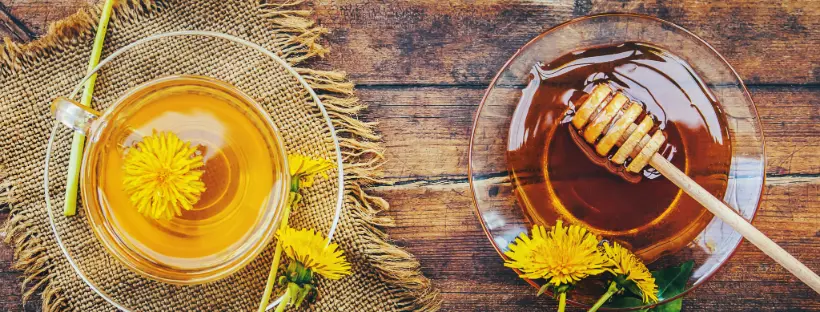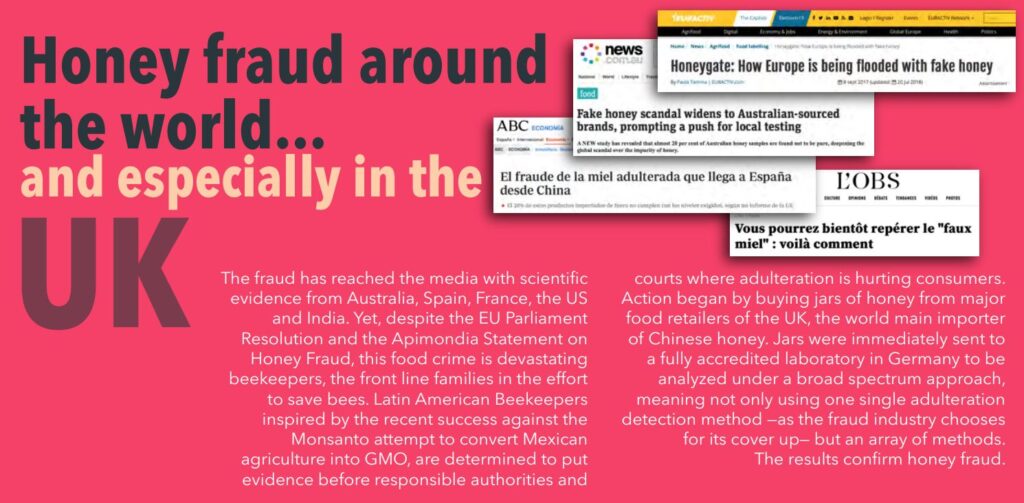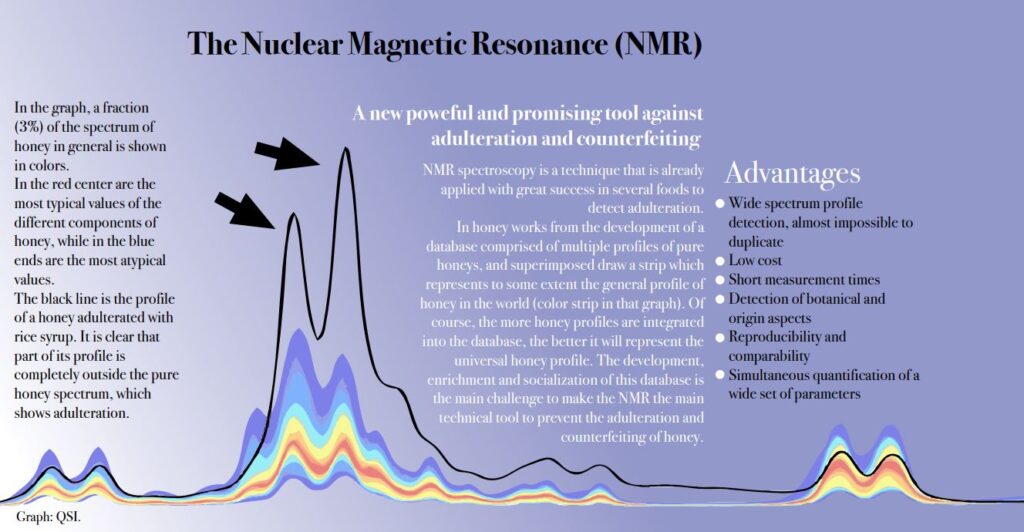Not all honey is what it seems – and that’s why buying from local beekeepers matters more than ever.

Honey adulteration is one of the most widespread forms of global food fraud. It happens when honey is diluted, mixed, or replaced with cheaper sugars such as corn syrup, rice syrup, or other industrial sweeteners. These adulterated products are often sold as “pure” or “100% natural” – but in reality, they undermine both honest beekeepers and the trust of consumers.
How Honey Adulteration Happens

There are several ways honey can be tampered with before it reaches the jar:
- Sugar syrups – cheap plant-based syrups are mixed in to increase volume and profit.
- Mislabelled origins – honey imported from other countries may be relabelled as “local” or “UK honey”.
- Overheating and over-filtering – these processes remove pollen and enzymes, making adulteration harder to detect.
- Blending – bulk honey from multiple countries is mixed together, hiding quality differences.
Why It Matters
Adulterated honey isn’t just dishonest – it’s damaging. Genuine beekeepers cannot compete with artificially cheap imports, and the nutritional and medicinal qualities of honey are lost when it’s diluted or overheated. This deception also distorts the market, discourages ethical production, and reduces consumer confidence in real honey.
Honey adulteration also impacts the environment. When consumers unknowingly buy fake honey, the demand for locally produced, sustainable honey decreases – and so does the incentive to care for bees and their habitats.
How to Spot Real Honey
Luckily, you can protect yourself by learning to recognise authentic honey. Look for jars that name the beekeeper or location, and be cautious of vague labels such as “Blend of EU and non-EU honeys.” Real honey has character — it may crystallise over time, vary in colour, and reflect the season’s flowers. Learn more on our guide: How to Spot Real Honey.
Support Honest Beekeepers
The best way to avoid adulterated honey is to buy directly from trusted local beekeepers. They can tell you exactly where your honey comes from, when it was harvested, and which flowers their bees visited. Every jar you buy supports ethical beekeeping and the health of UK pollinators.
Find a local beekeeper and enjoy real, traceable honey that’s as good for the planet as it is for your table.
Further Reading
For deeper insights into global honey fraud and testing, visit the Honey Authenticity Project – a leading resource on honey integrity, science, and traceability.


